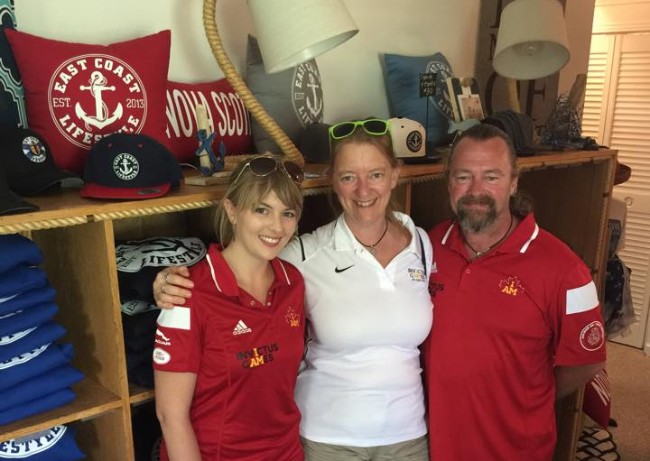
For many service members, the traumas of war extend well beyond the battle field. In Canada, an estimated 10 per cent of veterans deal with post-traumatic stress disorder (PTSD), a mental health condition described as a psychological response to an intense traumatic experience. PTSD comes in many forms. In some, the symptoms may reduce or disappear over time, while for others, the symptoms may remain for life, causing debilitating anxiety and distress not only to the person, but to those who care for them.
“My dad doesn’t talk much about [his PTSD] to my sister and I,” says Rhiannon Wyatt, daughter of 2016 Team Canada competitor Sean Wyatt. Sean served 29 years in the Royal Canadian Navy, and the Wyatt family has been coping with their father’s PTSD for many years, struggling to understand the changes in their father’s behaviour. “[The symptoms] started when he aided in the clean-up of the Swissair Flight 111, but he dealt with traumatic situations over his whole career in the Navy, which contributed to his debilitating PTSD.”
PTSD is an invisible wound, making it a frustrating reality for both the affected military personnel and their supporting family and friends. While there is growing awareness of how PTSD affects service members and veterans, there is still little awareness of its effect on their loved ones.
“Having an invisible disability is tough to deal with in many ways,” says Rhiannon. “My dad’s PTSD manifests itself in ways that are hard to understand. Because it’s so frustrating for him; it usually results in an angry outburst—not intending to hurt anyone, but it can be hurtful. It’s a struggle to remember to be supportive and to not take these things to heart.”
When asked how her relationship with her father has changed as a result of his PTSD, Rhiannon explains that she’s had to work on accepting her father’s new character. “You have to be willing to let go of your loved one’s past self and embrace them as they are now,” she explains. “My dad has always been my rock, and it’s extremely difficult to see him go through pain. There’s a shift where you have to start taking care of them, and it’s very difficult to accept. I haven’t gotten the hang of it yet, but I’m working on it.”
For the Wyatt family, the Invictus Games Orlando 2016 provided an opportunity to break the silence around PTSD. Seeing their father bravely compete in archery at the Invictus Games was a life-changing experience. The Games not only gave Sean a new mission, it gave him the opportunity to re-connect with military colleagues and the knowledge that he, and his family, doesn’t need to cope with his illness alone. “It feels like the end of the silence . . . like we can finally breathe,” Rhiannon says. “There’s a goal to work towards, something to look forward to, and an incredible group of people who are ready and willing to stand beside my mother, my sister, and me to support my dad.”
The Invictus Games Toronto 2017 looks forward to honouring the support and sacrifices of the military families and friends. For more stories like these, ‘Like’ our Facebook page and follow us on Twitter!


